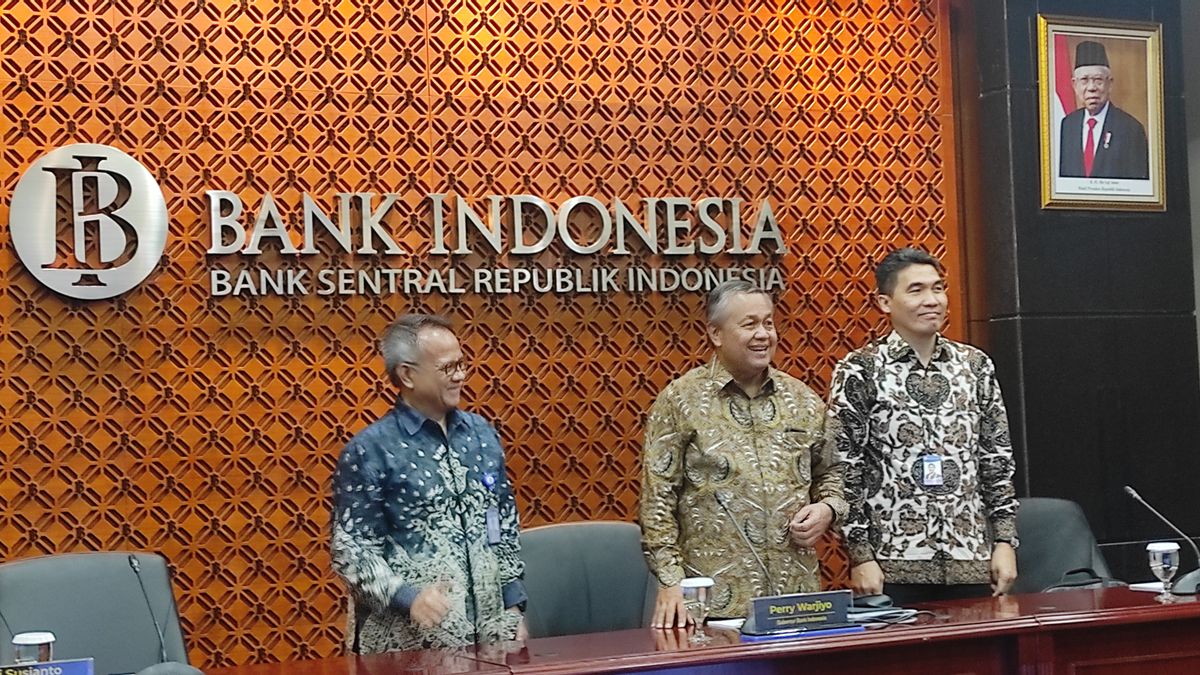JAKARTA - Bank Indonesia (BI) recorded the position of Indonesia's foreign exchange reserves at the end of April 2024 amounting to 136.2 billion US dollars.
This figure is down when compared to the position at the end of March 2024 of 140.4 billion US dollars.
Governor of Bank Indonesia (BI) Perry Warjiyo said that the decline in foreign exchange reserves in April was one of BI's efforts to stabilize the lower rupiah exchange rate recently.
"Of course it will go down (devisa reserves) if there is an outflow and stabilize the rupiah exchange rate. But we make sure the number of foreign exchange reserves will be more than sufficient", he explained in a media briefing on the latest economic developments, Wednesday, May 8.
Even so, Perry said that the position of Indonesia's foreign exchange reserves was still much higher than the International Monetary Fund (IMF) standard.
"So you don't have to worry about sugar, you don't have to be insecure, that's normal," he explained.
In addition, Perry said, with the existence of foreign capital flows entering the domestic market until the second week of May 2024 and the stable rupiah exchange rate, it was certain that foreign exchange reserves would increase.
"We make sure that the stock (devisa reserves) is much more sufficient than we need, the international size is 3 months and there are measures that we use the IMF is much higher than that need," he said.
Previously, the Director of the Communication Department, Fadjar Majardi, said that the decline in the position of foreign exchange reserves was influenced, among other things, by the payment of government foreign debt and the need for stabilization of the Rupiah exchange rate in line with the increasing uncertainty in the global financial market.
SEE ALSO:
Fadjar said the position of foreign exchange reserves was equivalent to financing 6.1 months of imports or 6.0 months of imports and payment of government foreign debt, and was above the international adequacy standard of about 3 months of imports.
"Bank Indonesia assesses that foreign exchange reserves are able to support the resilience of the external sector and maintain macroeconomic and financial system stability," he explained in his official statement, Wednesday, May 8.
In the future, Fadjar said that Bank Indonesia views that foreign exchange reserves will remain adequate, supported by stability and maintained national economic prospects.
This is in line with the synergy of the policy mix taken by Bank Indonesia and the Government in maintaining macroeconomic and financial system stability to support sustainable economic growth.
The English, Chinese, Japanese, Arabic, and French versions are automatically generated by the AI. So there may still be inaccuracies in translating, please always see Indonesian as our main language. (system supported by DigitalSiber.id)
















